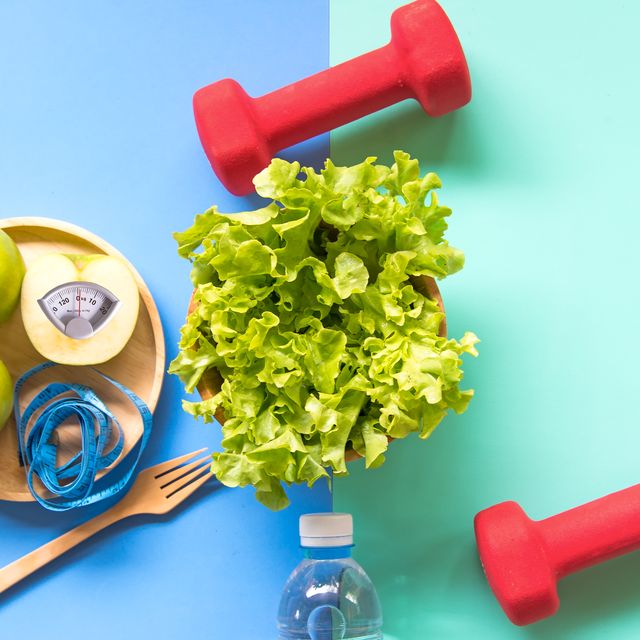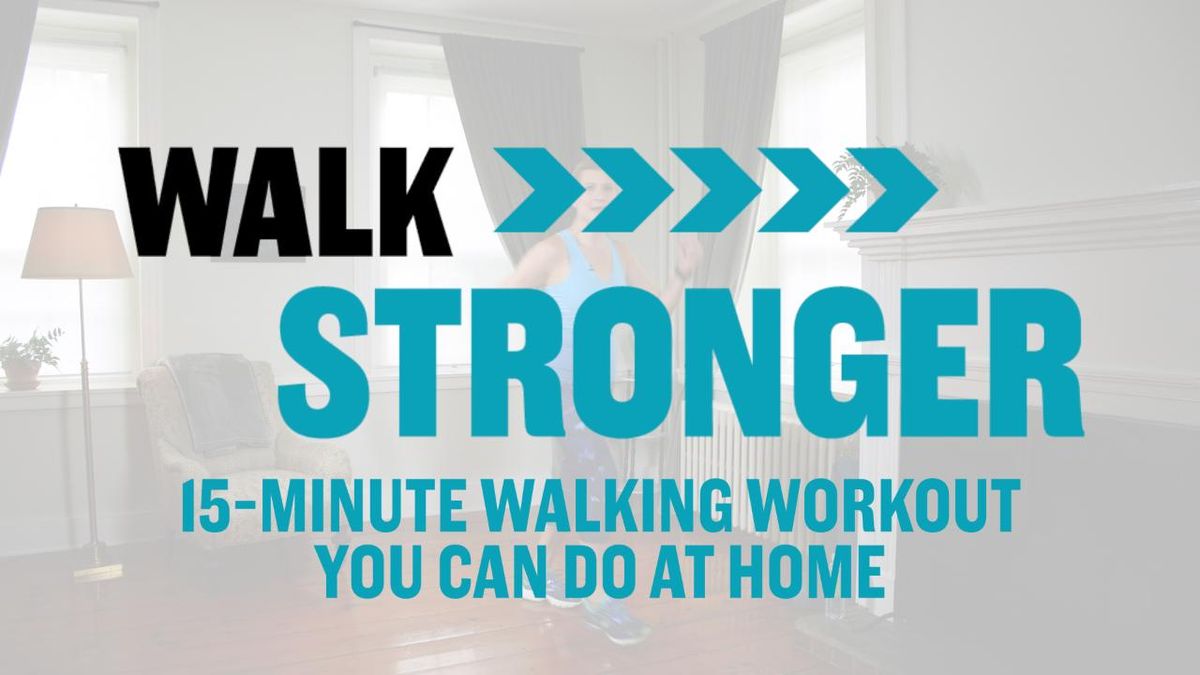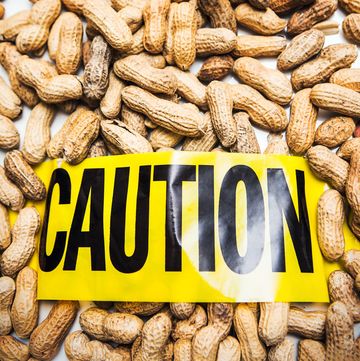Whether you're currently going through the big M or have already gotten past it, you may have noticed that losing weight is more difficult—and “it’s not just in your head," says Amanda Horton, MD, an OB-GYN at Johns Hopkins Medicine. "It really is harder to lose weight [during this period]."
Indeed, women gain, on average, 1.5 pounds per year in their 50s and 60s, notes Dr. Horton. That's because low estrogen levels during menopause can alter the balance of leptin and ghrelin levels—the hormones responsible for managing hunger—and increase appetite. Thyroid issues, stress, sleep problems, and certain medications can also contribute to weight gain.
“All the things that lead to weight gain also make it difficult to lose weight. But we do know it’s possible. It just requires continued effort,” says William Yancy, MD, program director for Duke Diet and Fitness Center.
Women who are going through menopause also tend to store more belly fat and lose muscle mass. "Despite following the same diet and exercise routines they've had for years, they still gain weight. If you decrease muscle mass, you burn fewer calories at rest," Dr. Horton explains.
That said, there are things you can do to help you lose weight post-menopause and offset the symptoms of lower estrogen levels. Keep reading to learn how.
Try interval training
When it comes losing weight through exercise, cardio workouts are still the gold standard. But high-intensity interval training (HIIT) has been shown to be more effective for burning fat and building muscle than low-intensity, steady-state (LISS) cardio.
“Some studies suggest that HIIT can improve overall strength and increase endurance, especially in those 65 and older,” says Liana Tobin, CSCS, personal trainer coordinator for the National Strength and Conditioning Association. “For muscle mass, a combination of HIIT and strength training would likely yield the best results.”
Both Dr. Horton and Dr. Yancy recommend working out at least 30 minutes per day, five days per week—but if you’re doing intense workouts that leave you breathless, you should aim for three 20-minute sessions per week.
Try this 15-minute total-body walking workout you can do at home:
Lift weights
Low estrogen levels during menopause makes it harder to build muscle. To give your metabolism a boost and prevent muscle loss, consider lifting weights more often. Because muscles are metabolically active, they burn more calories than fat. Research has shown that women lose about 10 to 15 percent of their strength every decade in middle age. “Physical inactivity, reduced protein intake, and stress are the most significant reasons for declining muscle mass during this period,” says Tobin.
Aim to do two to three full-body strength training workouts per week. Not sure where to start? Tobin recommends three different types of strength training: hypertrophy training (doing three sets of 10 reps of total-body exercises like weighted squats, bench press, and deadlifts); strength training (five sets of three to four reps of similar exercises at a heavier weight); and power training (three to four sets of three to four reps of max-intensity exercises, like box jumps, squat jumps, or medicine ball throws).
Eat more protein
If you're trying to lose weight, loading up on fiber and protein helps you feel fuller longer, warding off cravings. Protein also helps preserve muscle mass with age. Because our bodies can’t store protein, you need to eat it with every meal. Karen Ansel, RD, author of Healing Superfoods for Anti-Aging recommends consuming a moderate 20 and 25 grams of protein per meal. Try these high-protein meal prep ideas to get your daily fill of this important macronutrient.
Watch your calories
Since your metabolic rate declines with age, Dr. Horton says women need to consume, on average, 200 calories fewer than they did before menopause. “We know that exercise alone will not lead to substantial weight loss, and cutting calories is definitely necessary,” she says.
Just keep in mind that cutting calories drastically can backfire. “Eventually your metabolism will slow down in an effort to preserve resources,” says Ansel. If you’re not sure how many calories you need to maintain or lose weight, consult a dietitian to help you find the right eating plan that meets your nutritional needs.
Stay hydrated
“As we get older our sense of thirst becomes less precise, so it can be easy to forget to drink enough water, which is a natural appetite suppressant,” says Ansel. If you’re not drinking as much as you used to, smartphone apps can help you track your fluid intake so you don’t forget to stay hydrated—which for most of us means about six to eight cups of water per day, or more if you’re working out. Invest in an insulated water bottle to fill up on H2O throughout the day.
Load up on greens
Eating plenty of fruits and vegetables can help you manage your menopausal symptoms, Ansel says. “Research suggests that women who eat more of them [veggies and fruits] have fewer menopausal symptoms such as hot flashes and night sweats,” she says. Eating more greens will also help you get the recommended 25 to 30 grams of fiber a day. “Not only does fiber keep you full by taking up room in your gut, it fuels the growth of good gut bacteria that send satiety signals to your brain. Essentially it's nature’s appetite suppressant,” says Ansel.
Manage mood swings
During menopause, up to 20 percent of women suffer from depression, research suggests. And numerous studies have linked obesity with depression. “It’s not uncommon for people to deal with emotional issues by eating, and they often gravitate toward higher-calorie foods. It’s a problem for a lot of my patients,” says Dr. Yancy.
If your moods are messing with your appetite or exercise routines, seek help from your doctor or a therapist. Cognitive behavioral therapy can help with emotional eating as well as depression.
The bottom line: Losing weight after menopause is possible—it just takes more effort. Eating a healthy diet and exercising regularly will help keep your fat-burning engines humming. And by addressing health issues that may affect your ability to lose weight, you can adjust your lifestyle accordingly to fit your needs.

Colleen de Bellefonds is an American freelance journalist living in Paris, France, with her husband and dog, Mochi. She loves running, yoga, and wine, and is very particular about her baguettes.













